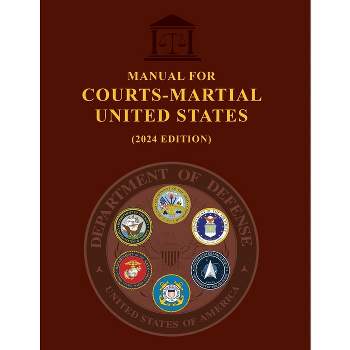Sponsored
Korea Under the American Military Government, 1945-1948 - by Bonnie B C Oh (Hardcover)

About this item
Highlights
- This collection, edited by Distinguished Professor of Korean Studies Bonnie B. C. Oh, helps to fill a considerable gap in the English-language literature on Korea and the United States.
- About the Author: BONNIE B. C. OH is Distinguished Professor of Korean Studies at the Edmund A. Walsh School of Foreign Studies at Georgetown University.
- 200 Pages
- History, Asia
Description
About the Book
This collection, edited by Distinguished Professor of Korean Studies Bonnie B. C. Oh, helps to fill a considerable gap in the English-language literature on Korea and the United States. Although much has been written about Korea in the Japanese colonial and World War II period and, of course, even more has been made available on the Korean War years, little has been written on the interim period when the United States attempted to rule Korea through a trusteeship.
Focused on the occupation and reconstruction of Japan after World War II, the U.S. government conceived a trusteeship for Korea, which would free up American forces to concentrate on Japan. It seemed the perfect solution: it would allow the time needed for Koreans to prepare themselves for independence; it would maintain U.S. involvement and interests in Korea; and it would create the mechanism that could sustain international cooperation. Flawless as it might have seemed, the trusteeship--and its implementer, the American Military Government--did not heed the Korean people's heightened expectation and passion for independence. And it did not handle well the new Soviet-style government it found in place in the north of the peninsula. All together, the various missteps and miscalculations of the American Military Government--and Washington--contributed to the new war to come. Oh and her contributors shed light on this previously unexamained period, and make significant use of Korean-language sources in doing so. Essential reading for scholars, students, and researchers involved with modern Korean Studies, the Cold War, and U.S. military history.
Book Synopsis
This collection, edited by Distinguished Professor of Korean Studies Bonnie B. C. Oh, helps to fill a considerable gap in the English-language literature on Korea and the United States. Although much has been written about Korea in the Japanese colonial and World War II period and, of course, even more has been made available on the Korean War years, little has been written on the interim period when the United States attempted to rule Korea through a trusteeship.
Focused on the occupation and reconstruction of Japan after World War II, the U.S. government conceived a trusteeship for Korea, which would free up American forces to concentrate on Japan. It seemed the perfect solution: it would allow the time needed for Koreans to prepare themselves for independence; it would maintain U.S. involvement and interests in Korea; and it would create the mechanism that could sustain international cooperation. Flawless as it might have seemed, the trusteeship--and its implementer, the American Military Government--did not heed the Korean people's heightened expectation and passion for independence. And it did not handle well the new Soviet-style government it found in place in the north of the peninsula. All together, the various missteps and miscalculations of the American Military Government--and Washington--contributed to the new war to come. Oh and her contributors shed light on this previously unexamained period, and make significant use of Korean-language sources in doing so. Essential reading for scholars, students, and researchers involved with modern Korean Studies, the Cold War, and U.S. military history.Review Quotes
.,."these essays make a strong case that personalism shaped postwar South Korea as well as North Korea. Professor Oh's volume should encourage others to return to the primary sources in our search for the real Korea after World War II."-The Journal of Military History
?...these essays make a strong case that personalism shaped postwar South Korea as well as North Korea. Professor Oh's volume should encourage others to return to the primary sources in our search for the real Korea after World War II.?-The Journal of Military History
..."these essays make a strong case that personalism shaped postwar South Korea as well as North Korea. Professor Oh's volume should encourage others to return to the primary sources in our search for the real Korea after World War II."-The Journal of Military History
About the Author
BONNIE B. C. OH is Distinguished Professor of Korean Studies at the Edmund A. Walsh School of Foreign Studies at Georgetown University. She has edited and co-edited a number of books and published numerous articles. Her most recent authored and co-edited publication is Comfort Women of World War II.






